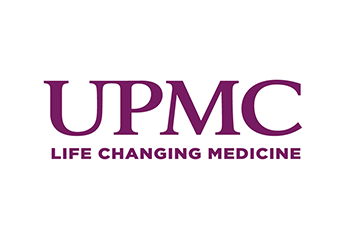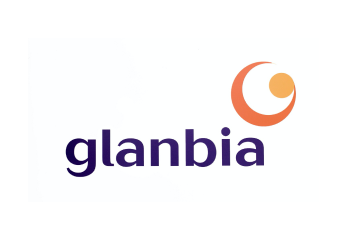 Oncologist Arnie Hill says breast cancer research could see the potentially fatal disease become a manageable condition
Oncologist Arnie Hill says breast cancer research could see the potentially fatal disease become a manageable condition
Professor Arnie Hill greets me in the foyer of the Royal College of Surgeons in Ireland (RCSI) with a friendly smile and a warm handshake. As we enter the Breast Cancer Ireland offices on York Street in Dublin, I consider how his personable, relaxed manner must have helped many of the 2,000 women he has treated for breast cancer over the past 15 years. A graduate of medicine at University College Dublin, Hill did his surgical training in Dublin and London before gaining specialist training at the University of Pennsylvania Hospital and the Memorial Sloan Kettering Cancer Center, New York. His first job when he returned to Ireland was at St Vincent’s University Hospital, Dublin, as a consultant general surgeon, and lead surgeon to the National Breast Screening Programme at that hospital in 1999. Six years later, he was appointed to the chair of surgery at RCSI, and moved to Beaumont Hospital, Dublin. In 2013, he became head of the medical school in RCSI. He spends about two days in surgery and the rest with students and researchers, mainly at Beaumont Hospital.
Hill’s enthusiasm for breast cancer research is evident. His clinical career began at about the time biological therapies became the breakthrough treatments for early breast cancer. A drug called Herceptin (Trastuzumab) became the world leader because of its direct action on cancer cells (it is an antibody that attaches itself to protein receptors, and blocks the growth of cancer cells in women who have the HER2 gene) and by making chemotherapy drugs work better. Researchers and patients at Beaumont Hospital were part of clinical trials into the effectiveness of these new therapies.
“It was a game-changer, the response was just amazing and extraordinary to watch in patients,” says Hill. As Herceptin became the standard treatment, clinicians and researchers began to see that many patients responded so well they might not require surgery. “We now know that breast cancer will be cleared in 50% of patients with the drugs alone, but we don’t know yet exactly which patients these are, so we continue to operate.” He predicts that surgical treatment for breast cancer will diminish as the targeted drug treatments improve. “There will be three drugs given in the future and 70% of patients will be treated without surgery, which will change the disease from a potentially fatal one to a chronic illness that can be managed.” Secondary cancers in the bone are now treated with bisphosphonates. “This monthly injection stops the activity of breast cancer in the bone, even though the disease remains there. It prolongs life for numerous patients,” says Hill.
Researchers at Breast Cancer Ireland are also testing hormonal treatments such as Tamoxifen and Arimidex on women who have survived breast cancer but are at a high risk of recurrence. “We are looking at the biomarkers (specific cells, molecules, genes or enzymes) in pre-menopausal and post-menopausal women to understand why up to 30% fail on these drugs over many years,” says Hill. “We’re keen to predict in whom the drugs will fail so that we can monitor them more closely and learn how best to intervene.”
Breast cancer is the most common type of cancer in women in the developed world, with 2,400 cases diagnosed in Ireland every year. Women at risk of getting breast and ovarian cancer due to the presence of the BRCA1 or 2 genes are in a different category to those with the aforementioned HER2 gene. Hill suggests that, as surgery reduces as a treatment for breast cancer, there will still be a number of women who, similar to the US actor Angelina Jolie, opt to have preventative surgery. “My ambition is to have no surgical work, and maybe I’ll achieve that before I retire, although I do think preventative surgery will keep us employed,” says Hill. Women with the BRCA1 gene have an 80% lifetime risk of developing breast cancer and up to 60% lifetime risk of developing ovarian cancer. “There will definitely be a lot more risk-reduction surgery, but this will bring a lot of interpersonal challenges and dynamics that will need management. We deal with women who continue to have breast-cancer screening mammograms and MRI scans, which is a challenging journey with potential scares and risk.”
Hill is most excited about onco-type testing, a recent research strand which looks at a series of genes in each individual tumour. “This test, which is now used in clinical practice, reduces by 50% the amount of chemotherapy we are delivering. It’s another game-changer, and through our involvement in clinical trials, Ireland has been the first country in Europe to use this test as standard treatment for public patients. In a few years time, we will be able to tell exactly when we can avoid chemotherapy.” The cumulative effect of all this research is that personalised medicine is becoming more and more a reality for patients of breast cancer. “In the future,” says Hill, “I predict that breast cancer will be treated at an earlier stage and with drugs alone.”
Professor Arnie Hill will take part in the fifth Great Pink Run in the Phoenix Park, Dublin, August 29. All funds raised go towards Breast Cancer Ireland research at the Royal College of Surgeons, Beaumont Hospital, and the eight designated cancer centres throughout Ireland. Monies raised over the past four years have funded the recruitment of specialist breast cancer research nurses, who collect and collate patient tissue and serum samples into one large centralised resource, which can be accessed by clinicians and scientists all over the country. This availability of samples helps speed up cancer research efforts to understand better the most suitable treatments for each individual tumour. This means each breast cancer patient can benefit from a personalised treatment plan aimed at achieving the most effective outcome.
For further details, see greatpinkrun.ie


















